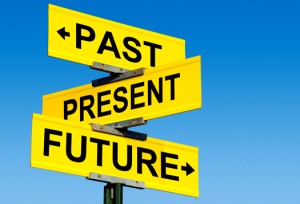 Wouldn’t it be nice if you could walk into any job interview and feel 100% confident? In this article, you’ll learn 3 preparation secrets that will reduce or eliminate your nervousness in job interviews…
Wouldn’t it be nice if you could walk into any job interview and feel 100% confident? In this article, you’ll learn 3 preparation secrets that will reduce or eliminate your nervousness in job interviews…
I worked in the NBA for 5 seasons, and one of the best parts of my job was that I had a behind-the-scenes look at the preparation habits of some of the world’s greatest athletes and performers. While working in the NBA, I got to watch All-Stars like Kobe Bryant, Shaquille O’Neal, and Lebron James, and I also got to attend concerts for top performers like Justin Timberlake, U2, and Beyonce.
The biggest lesson I learned from watching these stars up close and behind-the-scenes was that preparation is the key to confidence and success. You would be amazed at how much time and effort these stars spend preparing before their performances. If you think they just show up and wing it, you are wrong! The reason top performers look so confident when the lights are on is because they are well-prepared. If you want to look confident and perform at your best in a job interview, you need to prepare like a pro by following these 3 steps:
Interview Like a Pro
Step 1: Research
The interview is not a test, but you need to prepare as if it is. Luckily, it’s incredibly easy to research any person or organization these days thanks to the Internet, and the process of researching an employer should actually be interesting to you when you are pursuing a career connected to your passions (i.e. sports).
In addition to researching the employer’s web site, google the employer’s name and you’ll be able to read through recent activity about the organization. You can also check out their social media pages, where you’ll be able to learn more about what they do and what they look for in their employees.
 Step 2: Anticipate:
Step 2: Anticipate:
Everyone has insecurities during a job search as to why they think someone might not want to hire them. Before every interview, ask yourself, “What do I hope I’m not asked in this interview?” Then, prepare how you would respond if you are asked that question. When you are prepared to handle your biggest fear, there isn’t much to be nervous about.
You also need to anticipate other questions you are likely to be asked. You can google “interview questions” if you actually want to generate a list of 100-200 interview questions to prepare for. However, a much smarter strategy is to anticipate the questions you are likely to be asked and to prepare excellent answers for those likely questions.
There are two main questions employers will ask you, no matter what job you are applying for. These 2 questions can be summed up in four words: Why us? Why you? In other words, they want to know why you want the job and why they should hire you. Make sure you have a great answer to both of those questions.
To anticipate what else you will be asked in your job interview, ask yourself this question: “If I had to interview someone for this position based on the job description and the employer’s web site, what would I ask?”
Step 3: Practice
Before I interviewed for my dream job in the NBA, I asked one my friends Erica to interview me so that I could practice. Erica had a stopwatch so that she could time me while I answered her questions. The first question Erica asked me was, “Pete, tell me about yourself…”
I started my answer… Over 7 minutes later, Erica finally asked me to stop talking! The best way to prevent yourself from rambling and going off on tangents during a job interview is to write out your answers to likely questions and practice them before your interview. Luckily, I worked out the kinks before my real interview for an NBA job.
You can practice first with a stopwatch by yourself. Then, you can also practice with a friend or mentor. By going through a mock interview, you’ll be much more articulate and much more confident during the actual interview.
In summary, preparation is the secret if you want to perform your best in a job interview. Remember to R.A.P. When you research the people and organization interviewing you, anticipate likely questions, and practice answering those questions, you’ll be well on your way to getting your dream job in sports.

